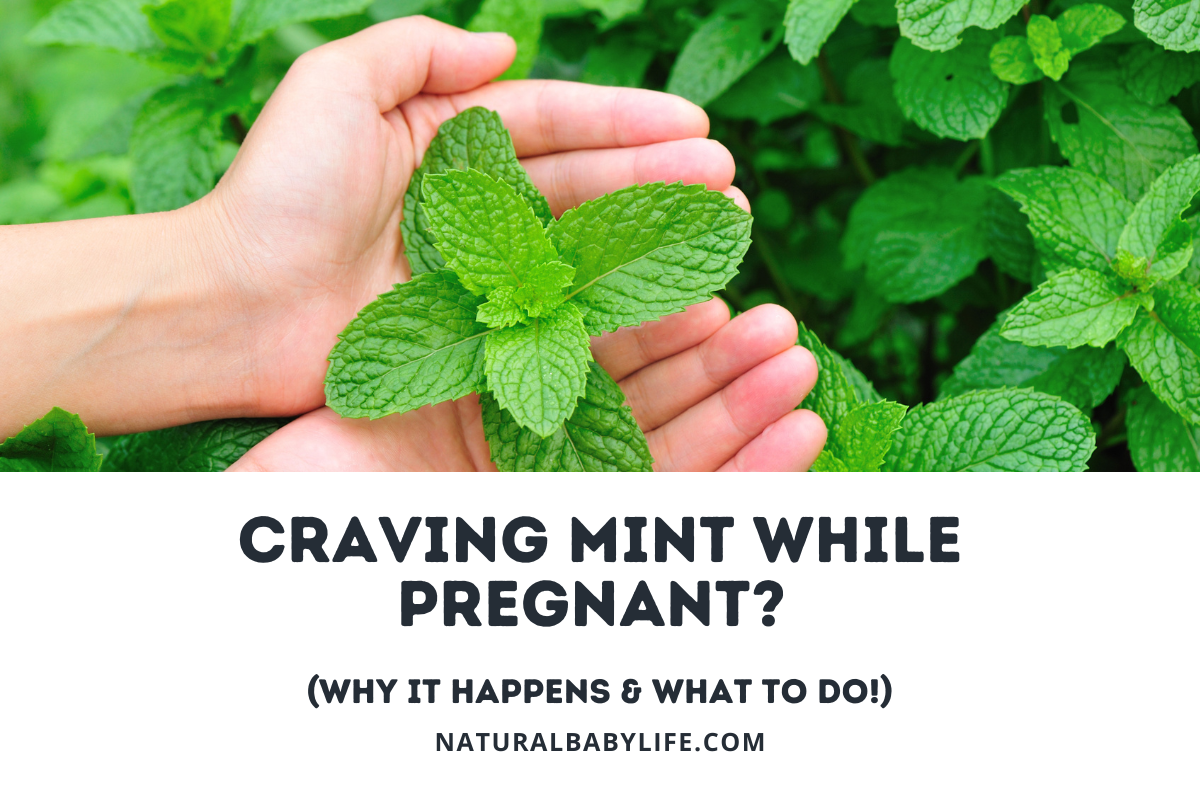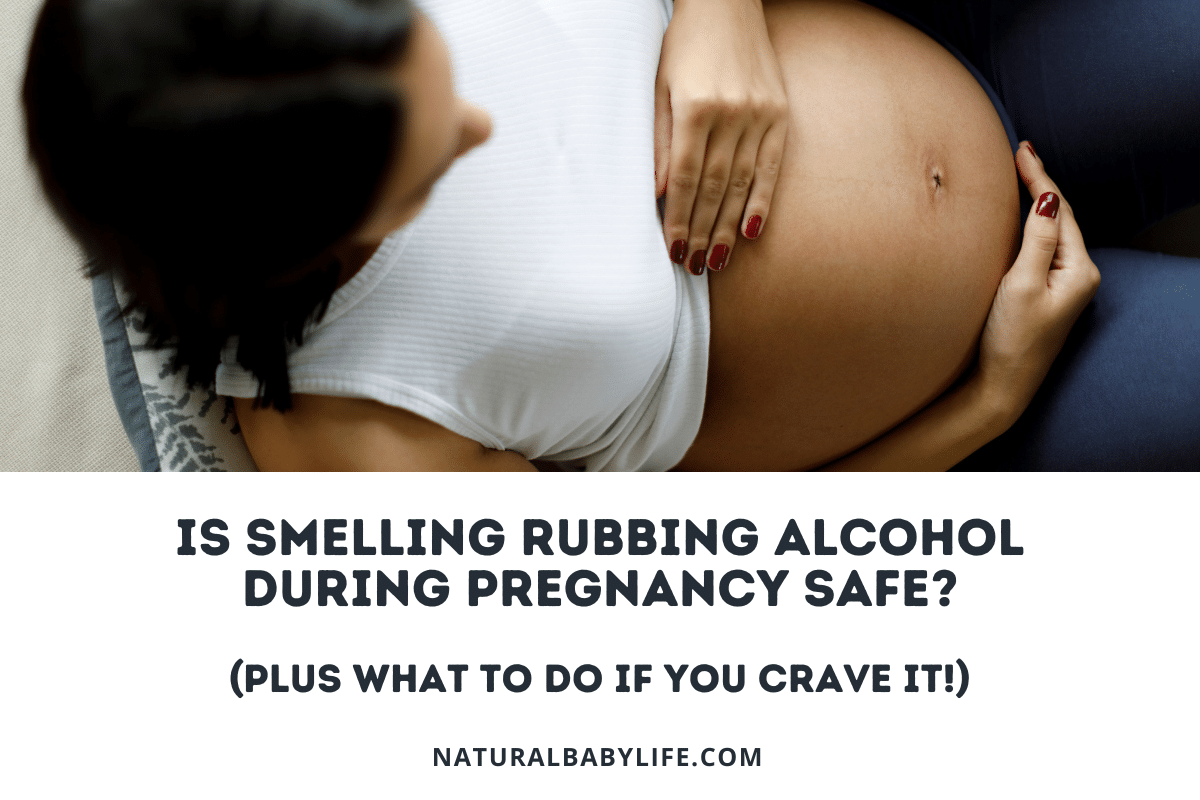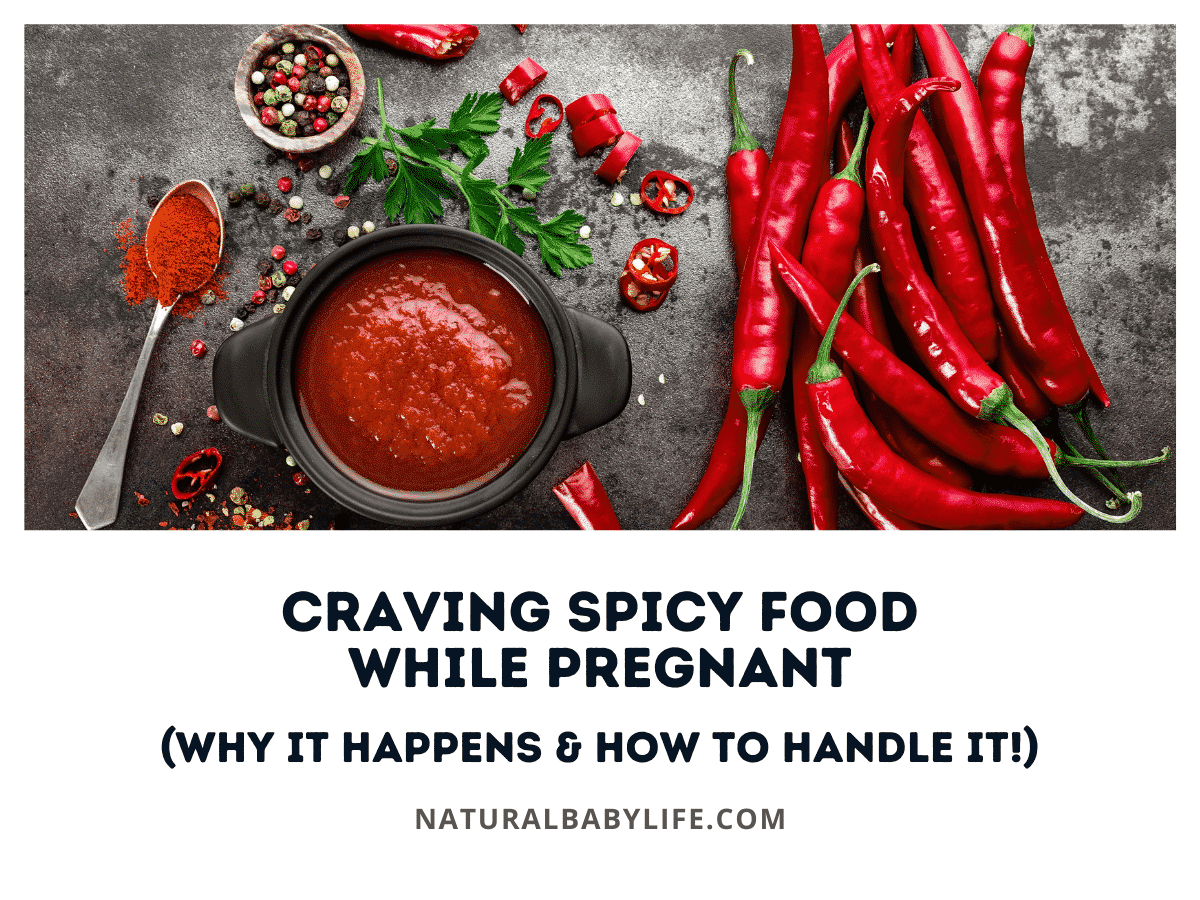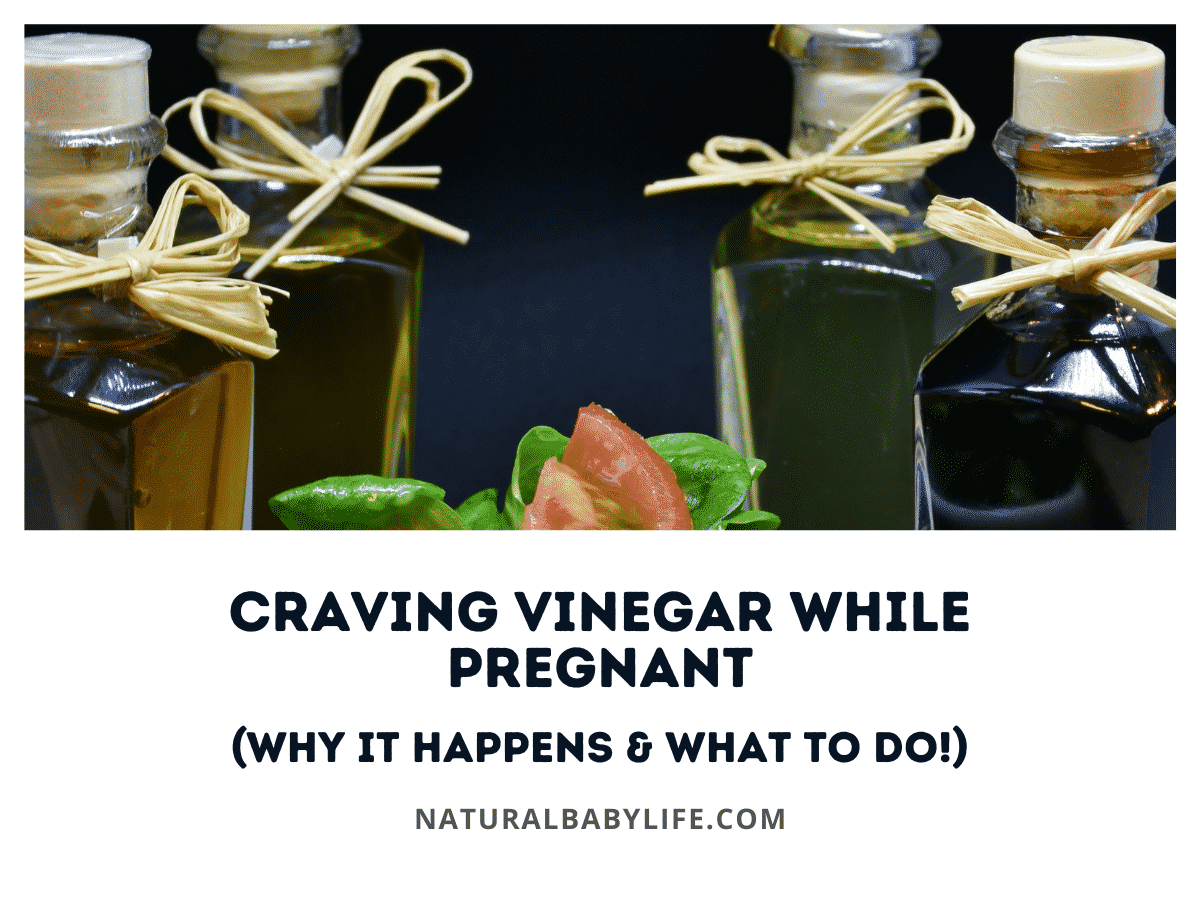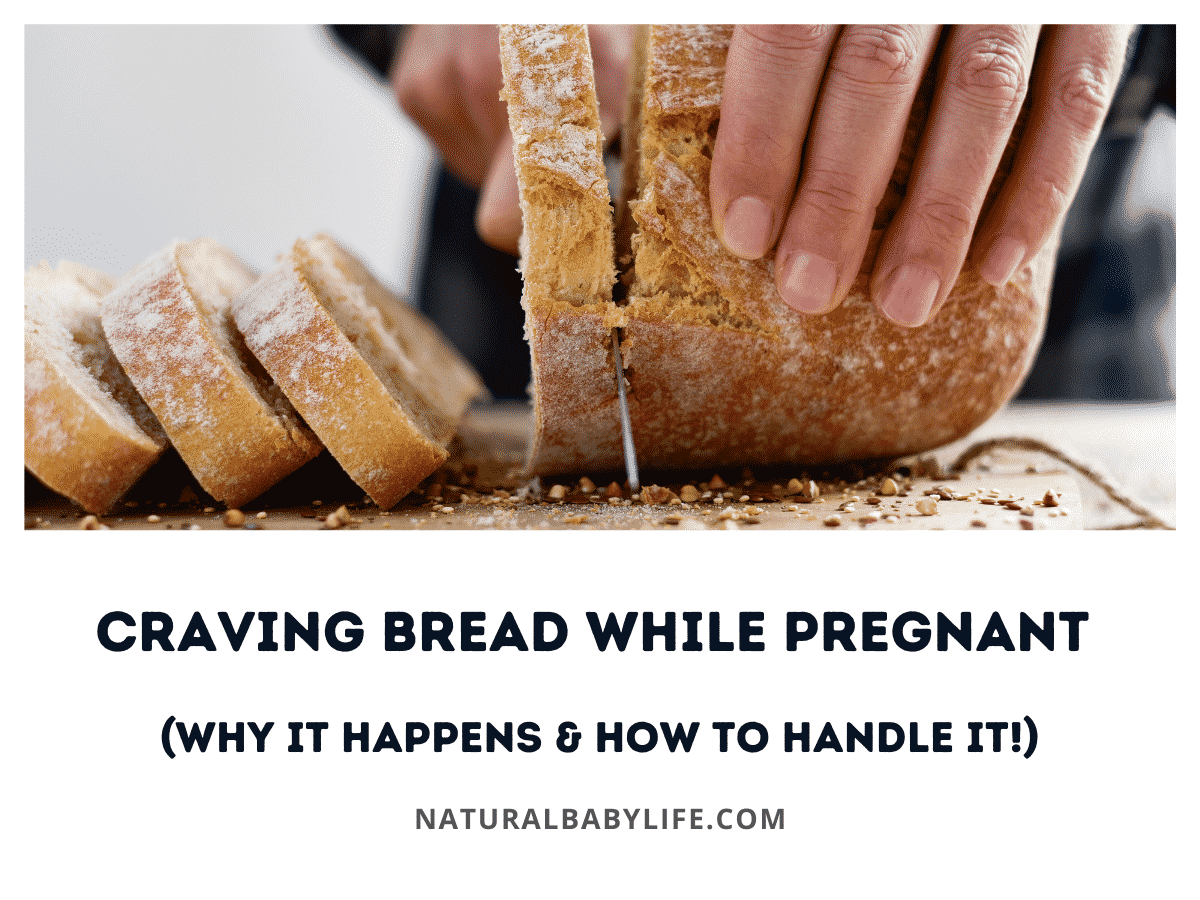Pregnancy brings all kinds of cravings for women. But what many women don’t know is that cravings can sometimes be our bodies trying to tell us something, often that we are missing a specific nutrient. So what does it mean when you’re craving mint during pregnancy?
Craving something mint-flavored during pregnancy is no different than other pregnancy cravings. But craving non-food substances, also known as pica cravings, can be a sign of a deficiency. If you are craving mint in an irregular form or to an extreme degree, talk to your healthcare provider about nutrient deficiencies.
Cravings during pregnancy can be difficult to resist, so it’s important to know what’s safe to eat. Read on to find out why you might crave mint during pregnancy and how to alleviate the craving.
Table of Contents
Is it normal to crave mint during pregnancy?
It’s not unusual to picture pregnant women with strange cravings, typically something like pickles and ice cream. Studies have shown that women in the United States experience food cravings at two different times- during menstruation and during pregnancy.
For pregnant women especially, cravings can be hard to resist and around 50-90% of women reported experiencing cravings during pregnancy. Interestingly enough, most of the women who reported having pregnancy cravings also claimed to have food cravings outside of pregnancy. In a similar study, 58% of women reported that they had experienced food cravings, but only 7% of the 58% experienced cravings exclusively during pregnancy.
Although all women experience pregnancy differently, mint is not usually listed as one of the most common pregnancy cravings. However, sweets such as chocolate and candy made the top of the list, followed by savory foods, animal protein, and fruit. What’s normal for one woman during pregnancy may not be normal for another. If you’re craving something mint flavored, it’s likely a normal pregnancy symptom. But if you crave mint in a non-food form or are craving it to an extreme degree where you can’t eat anything else, this could be what’s known as Pica, which is when you crave substances with no nutritional value. These cravings are sometimes linked to iron deficiency or other underlying illnesses.
When do women normally crave mint while pregnant?
Food cravings can appear at different times throughout pregnancy, and some women don’t experience strong cravings at all. But for most pregnant women who do have cravings, they usually appear by the end of the first trimester, and there’s typically a peak in intensity around the second trimester.
Some women are surprised by what they crave during pregnancy, especially when they crave something they disliked before. It can be a strange feeling when all of a sudden you only want to eat buffalo wings when you may have hated buffalo prior to your pregnancy. Many women do report a change in taste during pregnancy though and like most pregnancy symptoms, hormones are mostly to blame.
Is it safe to have mint during pregnancy?
Mint can be a great thing for pregnant women and often has a relaxing effect, whether you’re drinking peppermint tea or eating mint ice cream. There’s no evidence that mint by itself is unsafe for pregnant women, although you should always speak to your doctor or midwife before introducing any herb, oil, or medicine you’re unsure about.
Can having mint harm an unborn baby?
Studies have shown mint is safe for use during pregnancy in moderate doses. But if you’re drinking herbal tea, just be sure there aren’t any other harmful ingredients such as other herbs that may be unsafe for pregnancy.
Antispasmodics, such as peppermint oil, are used to treat stomach issues like irritable bowel syndrome. There are varying opinions on the use of peppermint oil during pregnancy since the effects on an unborn baby haven’t been thoroughly studied.
In some cases, peppermint oil is considered when a pregnant woman has extreme symptoms that can’t be relieved any other way. However, it’s especially important to avoid using peppermint oil during the first trimester without speaking to a doctor, since this is when most of the baby’s body and organs develop.
How much mint can you have while pregnant?
Peppermint is one of the most frequently used herbal medicines during pregnancy and has numerous benefits. But it’s not recommended for excessive use, especially during early pregnancy, because it’s known to stimulate menstruation. Like any herb or medicine, mint should be used in moderation throughout each trimester. When it comes to using mint in tea, a moderate amount typically means no more than one or two cups a day.
Is it safe to grow mint?
If you plan on using mint frequently throughout your pregnancy, you might consider growing your own mint. This is a safe and cost-effective way to keep mint around the house. You can never be too careful during pregnancy, so be aware of what you’re using to help your mint grow. It’s best to grow mint in a pot where you can provide your own soil, since if you’re using soil from outside, there’s a risk of unknown contaminants being in the soil.
Is mint beneficial for pregnancy?
The first trimester can be rough for pregnant women and it’s during this time when most women experience morning sickness. But mint, specifically peppermint leaf, can be a helpful remedy for morning sickness or nausea. One study even showed that some mothers found peppermint oil to be helpful for reducing nausea and vomiting during labor. Aside from relief from nausea, mint has other benefits such as:
- Giving you a cooling sensation
- Strengthening your stomach
- Alleviating skin problems
- Antibacterial properties
The best type of mint to eat while pregnant
Whether you’re craving mint during pregnancy or simply want to receive some of the health benefits, there are various ways you can consume mint. During your pregnancy, you might try:
- Peppermint tea
Although moms can have some caffeine during pregnancy, many pregnant women choose to reduce their intake or cut out caffeine entirely. Peppermint tea is a healthy alternative to your cup of morning or afternoon coffee. - Mint leaves
Instead of buying premade mint products, you might satisfy your craving by going straight to the source. Some women choose to chew on mint leaves to combat nausea or freshen their breath. You could make your own tea by putting some leaves in hot water, or you might even make a mint sorbet.
- Mint candy or gum
During pregnancy, it’s not a bad idea to keep some hard mint candy or mint gum with you in case of morning sickness or nausea. One thing to look out for is artificial ingredients- try to find candy or gum that uses natural sweeteners.
What does it mean if you crave mint while pregnant?
It’s true that sometimes cravings, especially of non-food substances, can signal a bigger problem. When it comes to craving mint, it’s sometimes believed that this is a symptom of iron deficiency or anemia. Before you worry, this isn’t necessarily an indicator of anemia. Although it is possible for your mint craving to be your body’s way of telling you you’re lacking nutrients, just because you want some mint chocolate chip ice cream, for example, doesn’t mean there’s cause for concern. You should talk to your doctor if you crave mint-flavored substances other than food, or if your craving is so extreme that you can’t eat anything else.
Aside from health concerns, there are also old wives’ tales that claim certain cravings can predict details about your baby, such as their gender. One example is some say if you’re craving sweet things like fruit or mints, it means you’re having a girl. It can be fun to predict your baby’s gender or characteristics based on your cravings, but only time will tell what your baby is really like.

